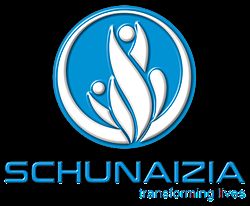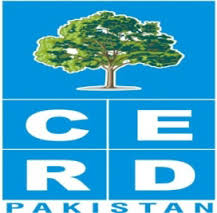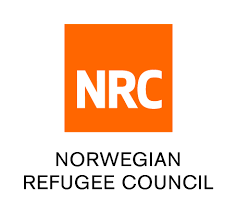خلاصہ
Master in Economics from University of Peshawar (UOP). Having more than 8 years working experience with National and international organization. Currently i am working with SRSP as social Organizer in Health related project, funded by BMGF at district Bannu. I worked with Schunaizia Relief & Development Organization (SRDO) as a District Coordinator in Electoral Support Project & Social Mobilizer in "USAID KPG Project Established Local Government Good Governance Index (LGGGI) for Peshawar City District Government". I have worked as Hygiene Promoter with Human Development Organization Doaba, Social Organizer with Associate in Community Development (GBV-UNOCHA) in Khyber Agency, Project Officer/ Senior Officer Information Counselor (ICLA-ECHO, NMFA, UNHCR) with Norwegian Refugee Council, Child Protection Field Monitor with CERD(Child Protection-UNICEF).
Recently I completed my last assignment with Schunaizia Relief & Development Organization as District Coordinator in Electoral Support Project at District Lahore. Establishing Local Government Good Governance Index for District Peshawar "
In my professional career I have learned a lot, fast decision-making and leadership skills, ability to work in multi sector projects, work under pressure and respect deadlines, excellent communication and public relations skills. Further more independent work and proactive initiative capacities Research skills, flexibility and adaptability.
پراجیکٹس
تجربہ
Social Organizer
Collect immunization data from DHO Office Bannu of covered and uncovered locations of the Union Councils.
Organize medical camps in all targeted UCs once in a month to upscale immunization process.
To conduct regular meetings with the MCOs to discuss health related issues, services points (location and timing of health care facilities, availability of vaccinators and others) and details of the services provided by them.
To seek the community feedback and document, as well as bring this in the relevant forum (MCOs) for the discussion.
To identify the community focal persons in the relevant areas, by following set criteria, and engage them in the activities on volunteer basis, when required
Ensure the coordination between SRSP Staff and vaccination staff for proper vaccination and coordinate with the relevant TSVs.
Create the mass awareness about the benefits of the vaccination & conduct the awareness sessions with community members during the routine meetings of the MCOs.
Engage vaccination activities and monitoring of immunization services.
To develop Micro planning, as per the guidance and supervision of Team Leader, and maintain daily diary for the activities.
To prepare monthly work plan, and in the plan she/he should cover all UCs at least at once in a month and give proper feedback to the Team Leader and EPI Coordinator.
To check the permanent register during monitoring visits and match the database along with the sheets maintains by the Vaccination staff. To ensure that the Vaccination Staff should collect the data in their registration sheets.
Every message that is received from the management should communicate to the Vaccination Staff by text in simple language.
To assess job knowledge of field assistant during his/her field visit.
All field level observations to be maintained on regular basis and shared with the TEAM LEADER for further action.
To perform any other duties / assignment that may be assigned by the organization as and when required for the effective implementation of the project and prepare case study on monthly basis
Livelihood Officer
Identification and registration of beneficiary households for livelihood program.
Regular monitoring of the activities at distribution level and off site with households.
Need identification through TNA
Ensuring timely implementation of livelihood activities.
Working closely with Team Leader to ensure all supply request related to the project activities are done timely and according to procedures.
Managing project activities in the targeted Project Area.
Supporting field staff for the timely implementation of activities at field level.
Documenting in the timely manner, all progress challenges, and learning for future implementation of similar projects and accountability.
Leading assessment in the operational area for livelihood interventions.
Conducting regular field visits to verify quality /progress of Livelihood Program interventions provide technical guidance and advice.
Over all coordination of project activities.
Social Mobilizer
A. Mobilization and Organization of the beneficiary communities.
1. Receive training on the project concept and approach to the community mobilization.
2. Contact the opinion leaders in the communities to establish early rapport and to provide overall orientation of the project.
3. With the support of opinion leaders mobilize, interact and dialogue with individuals representing beneficiary for the organization of community for development.
4. Provide orientation training to the members of community to raise awareness about the project
5. Facilitate small and large community meetings to encourage discussions.
B. Obtaining information related to the beneficiary communities
1. Obtain community data necessary for preparing community profiles as per the standard “Community Profile” format of the project.
2. Conduct baseline survey of the beneficiaries to establish baseline data of the community on some key indicators to measure impact of the projects.
3. Provide necessary reporting inputs to the monitoring and evaluation officer as per the standard monitoring formats on regular basis.
C. Reporting and Linkages
1. Assist Program Manager in development of a clear work plan for the community mobilization activities of the projects with the aim to complete the activities within the time frame of the project.
2. Ensure field-testing of the various phase of social mobilization materials as they are developed and provide feedback.
3. Capture success stories and lessons learned in each phase of program implementation.
4. Prepare monthly and quarterly report on standard, monthly reporting formats.
Other Duties and Responsibilities
Any other Duty or task assigned by the Supervisor.

Social Mobilizer/ Hygiene Promoter
Pre-KAP and Post-KAP survey for WASH related activities.
Needs assessments, surveys, interviews, FGDs for project activities, and proper documentation of mention activities is maintained
Raise WASH profile of target area by implementing CLTS/SLTS & PATS approaches effectively
• To conduct a participatory approach in promoting good water, sanitation and hygiene practices in the targeted area
• To conduct participatory monitoring of water and sanitation facilities usage and maintenance with community
• Formation of Village WASH Committees and subcommittees in the project area as per need
• Capacity building of the community organization through orientations and in house training
• Strongly mobiliz
Train community on personal, domestic and environmental hygiene and WASH specific items which need special knowledge for operation and maintenance, i.e hand pumps repair, water purification tablets, water treatment equipment
Participatory approach in promoting good water, sanitation and hygiene practices in targeted population
For quality work and optimal use conduct participatory monitoring of water and sanitation facilities usage and maintenance with community
Inform local authority and health department, and give quick response if there is outbreak in community of diarrhea or any other.
Organize and train, community ToTs for relevant tools
Produce public information materials
Perform the periodic reporting, along with data analysis from the field and suggest the meaningful interventions for field based programs
Ensure community participation and development of a progressive environment for empowered community through Hygiene and WASH activities
Coordinate with all the relevant stakeholders at the field and inter/ intra organizational level for meeting the program objectives
Support the team in organizing hygiene/sanitation days (Global Hand washing Day, Latrine Day)
Submit weekly/monthly progress reports to the Projec
Social Organizer
• Regular monitoring of field activities for the successful and smooth implementation of AICD projects;
• Submitting daily updates, and weekly and monthly reports to the Project Coordinator on the targets achieved and the progress of the project activities agreed upon in the detailed work plans;
• Liaising with the Project Coordinator on the progress of partnership projects achieved;
• Identifying gaps in implementation of AICD projects and suggest actions for improvement to the Project Coordinator;
• Support partner organizations’ field staff in successful completion of projects in consultation with the Project Coordinator;
• Support partner organizations’ field staff personnel with needs assessments, risk assessments and compilation of data necessary for elaboration of project proposals;
• Coordinate with partner organizations field staff for project related correspondences;
• Collecting and providing necessary field data on the project target groups, when required by the Project Coordinator;
• Accompanying project visitors to the field when required, in consultation with the Project Coordinator;
• Carrying out any other tasks assigned by the Project Coordinator.
Project Officer Information Counselor
• In areas where there is an ICLA Team Leader, Grievance Desk staff will report to this person and otherwise to the head of the office in the particular location
• Establishing an orderly system for accepting grievances which meet the criteria outlined in the TORs and Guidance in relation to the Grievance Desk (Returns) Form. This might take the form of a two stage process, for example, ay the initial stage cases are briefly assessed to determine whether they meet the criteria by staff members and at the second stage, the grievance is recorded by other staff members. The system to be adopted will be determined by staff on the ground;
• All IDPs approaching the Grievance Desks should be dealt with in a polite manner with full respect for their human rights, including their rights to dignity, privacy and confidentiality;
• No grievances that do not meet the criteria can be submitted to the Protection Cluster;
• Staff members should ensure that they complete Grievance Desk (Returns) Forms providing sufficient detail so that the Protection Cluster and the authorities can determine the case. Otherwise, forms will simply be returned to the staff and the IDP’s time will be wasted.
• A secure record keeping system should be established so that Grievance Desk Forms are securely stored ( hard copies in locked filing cabinets and electronic versions protected by password) and transferred;
• Staff members should regularly update the electronic records for both eligible and ineligible cases and these should be forwarded to the ICLA Project Manager weekly basis.
• All NRC staff members working at the Grievance Desks should be fully familiar with the and should follow the procedures set out in the TORs for the Protection Cluster Grievance Desks for Returns (Protection Cluster April 2012), the Protection Cluster Grievance Desk (Returns) Form and the Guidance for the Protection Cluster (Returns) Form.
• Other tasks may be assigned to the incumbent when required by the line supervisor.
• Submit weekly, monthly progress reports of the activities to Project manager ICLA
Senior officer Information counselor
• In areas where there is an ICLA Team Leader, Grievance Desk staff will report to this person and otherwise to the head of the office in the particular location
• Establishing an orderly system for accepting grievances which meet the criteria outlined in the TORs and Guidance in relation to the Grievance Desk (Returns) Form. This might take the form of a two stage process, for example, ay the initial stage cases are briefly assessed to determine whether they meet the criteria by staff members and at the second stage, the grievance is recorded by other staff members. The system to be adopted will be determined by staff on the ground;
• All IDPs approaching the Grievance Desks should be dealt with in a polite manner with full respect for their human rights, including their rights to dignity, privacy and confidentiality;
• No grievances that do not meet the criteria can be submitted to the Protection Cluster;
• Staff members should ensure that they complete Grievance Desk (Returns) Forms providing sufficient detail so that the Protection Cluster and the authorities can determine the case. Otherwise, forms will simply be returned to the staff and the IDP’s time will be wasted.
• A secure record keeping system should be established so that Grievance Desk Forms are securely stored ( hard copies in locked filing cabinets and electronic versions protected by password) and transferred;
• Staff members should regularly update the electronic records for both eligible and ineligible cases and these should be forwarded to the ICLA Project Manager weekly basis.
• All NRC staff members working at the Grievance Desks should be fully familiar with the and should follow the procedures set out in the TORs for the Protection Cluster Grievance Desks for Returns (Protection Cluster April 2012), the Protection Cluster Grievance Desk (Returns) Form and the Guidance for the Protection Cluster (Returns) Form.
• Other tasks may be assigned to the incumbent when required by the line supervisor.
• Submit weekly, monthly progress reports of the activities to Project manager ICLA
Child Protection Monitor
• Carrying out comprehensive assessment of Concern UC in Buner
• Carrying out on regular basis need assessment visits to community for data collection
• Conduct all field activities
• Develops community based networks per CPC
• Develops strong link and coordination among the child protection centres, community groups and other relevant formal and non-formal bodies at the community level and with different IP’s in District Buner
• To provide updated changes in data.
• Maintaining daily attendance
• Providing recreational facilities to the children and conducting recreational activities.
• Meeting with parents and CPC’s as per need to solve protection issues with their children.
• Provide daily, weekly reports and other important information on need basis to field coordinator.
• Any other task as assigned by CP coordinator.
Child Protection Monitor
• To identify various children i.e. Orphans, disables etc. in the IDPs camp.
• Community mobilization and identification of community representatives.
• Identification of active social workers.
• Make Child Protection Committees in the camps.
• To coordinate with other IPs in the camp if advised by the coordinator.
• Arranged and conducted community sessions on Child Protection in the camp.
• Arranged various kinds of competitions for children in the camp.
• Formation of Child Friendly Spaces for children in the camp.
• Arrange community gathering to disseminate information to assist community.
• To help the people in the camp in all their problems.
• To attract the children and their parents to CFS.
• To make contact with other organizations working on child rights.
• Monitoring of EVI,s.
• Social Mobilization in Jalozai Camp
• Identification of unregistered families
• Data Collection
• Daily reporting to the Project Coordinator





